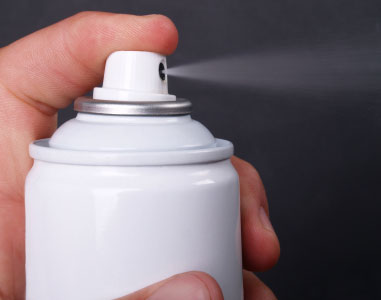![]()
by Cynthia Perkins, M.Ed.

Addicted individuals have malfunctioning and/or deficient neurotransmitters, which lead to cravings for sugar, caffeine, carbohydrates, nicotine, alcohol or drugs etc., in an attempt to balance out brain chemistry. The primary goal in achieving successful recovery from addiction is to restore balance to the neurotransmitters so that cravings for the drug of choice will disappear. This is achieved by addressing the many factors that disrupt neurotransmitter functioning like nutritional deficiencies, candida overgrowth, hypoglycemia, food allergy or sensitivity, healing child abuse issues, hypothyroidism, sugar, caffeine and nicotine and environmental toxins.
Scientific studies tell us that pretty much every modern day health condition, illness, syndrome, disease, problem or symptom can be linked either directly or indirectly to environmental toxins, nutrition and lifestyle choices and in no other place is this more apparent than in the case of addiction. However, most people are completely unaware that environmental toxins are one of the primary factors that wreak havoc on crucial neurotransmitters and the reward pathway and contribute to a wide variety of physical and emotional symptoms that are often at the root of relapse or inability to abstain from their drug of choice, be it sugar, caffeine, nicotine, alcohol, gambling, hard drugs etc.
Many of the common everyday chemicals found in our household cleaning supplies, as well as personal care products, pesticides, herbicides, plastic, fuels, perfume, air fresheners, cosmetics, construction of housing, carpeting etc., alter normal functioning of hormones, kill brain cells and disrupt metabolic systems. Additionally, they also disrupt and inhibit functioning of the crucial neurotransmitter in the reward pathway, dopamine, as well as serotonin, acetylcholine and norepinephrine. They disrupt the endocrine system, nervous system and immune system, and damage the pituitary, thyroid, hippocampus and adrenal glands as well as all the other organs and systems in the body.
Environmental toxins have a profound impact on the all-important neurotransmitters, dopamine, serotonin, etc., that are involved in the addiction process. Environmental toxins make the neurotransmitters go haywire and deplete them. They are all over the place. Remember, our main goal in recovery from any addiction, is to keep the neurotransmitters in balance. When neurotransmitters are out of balance, then cravings for sugar, caffeine, nicotine, alcohol and/or drugs ensue.
For example, if an alcoholic, drug addict, sugar addict etc., who is in recovery works as a pest exterminator or spends time on a golf course that are notoriously polluted with herbicides or has their apartment fumigated for cockroaches, then their neurotransmitters are inhibited and symptoms of anxiety, depression, irritability and confusion develop and then they have cravings for sugar, carbohydrates, caffeine or alcohol and/or drugs to get relief.
The same applies to everyday common chemicals in your home. Every time you sprinkle air fresheners on your carpet, wash your clothes, scrub the floor, take a bath, put on your makeup, get new carpet, remodel your house, get a new car, paint your finger nails, paint the walls, take clothes to the dry cleaners, clean the bathroom, spray your hair with hairspray and even brush your teeth, you are exposed to toxic substances that throw your neurotransmitters out of balance and can lead to cravings for your drug of choice.
Additionally, environmental toxins have a profound impact on the brain and nervous system and result in a variety of psychological and physiological symptoms. Many sugar addicts, alcoholics, drug addicts, etc., unknowingly have multiple chemical sensitivity. These symptoms can be a major trigger that drives the addict to use their substance of choice as they try to self-medicate to feel better.
Dr. Theron Randolph, the grandfather of environmental medicine, tells us that some people are biochemically susceptible to experiencing a pleasurable, euphoric, addictive high when exposed to environmental toxins. Chemicals stimulate the reward pathway in a similar manner as alcohol and/or drugs, and just like when you ingest an addictive substance, once the environmental toxin is out of your environment, you then experience the same type of physical and emotional crash where you feel extremely low, depressed, anxious, confused, or hyper, which results in a craving for sugar, carbohydrates, caffeine, alcohol and/or drugs to get relief from the discomfort. Environmental toxins bring you up high and then send you crashing down, thus keeping the process of physiological addiction active.
Reducing chemical exposures is an essential component for anyone recovering from an addiction. When neurotransmitter balance is restored, then cravings are eliminated and long-term recovery can be achieved.
 Cynthia Perkins, M.Ed., is a sobriety coach and a recovered alcoholic and drug addict with 21 years of uninterrupted and craving-free sobriety, and author of Get Sober Stay Sober: The Truth About Alcoholism. Learn more about the science of alcohol addiction and how you can achieve permanent, craving-free sobriety at Alternatives for Alcoholism.
Cynthia Perkins, M.Ed., is a sobriety coach and a recovered alcoholic and drug addict with 21 years of uninterrupted and craving-free sobriety, and author of Get Sober Stay Sober: The Truth About Alcoholism. Learn more about the science of alcohol addiction and how you can achieve permanent, craving-free sobriety at Alternatives for Alcoholism.









0 Comments